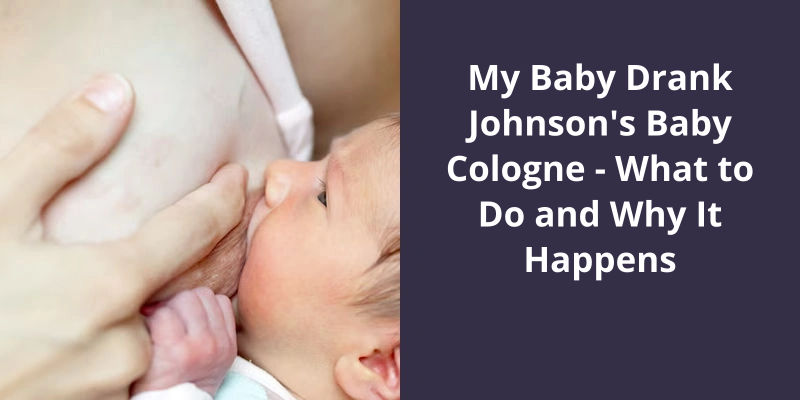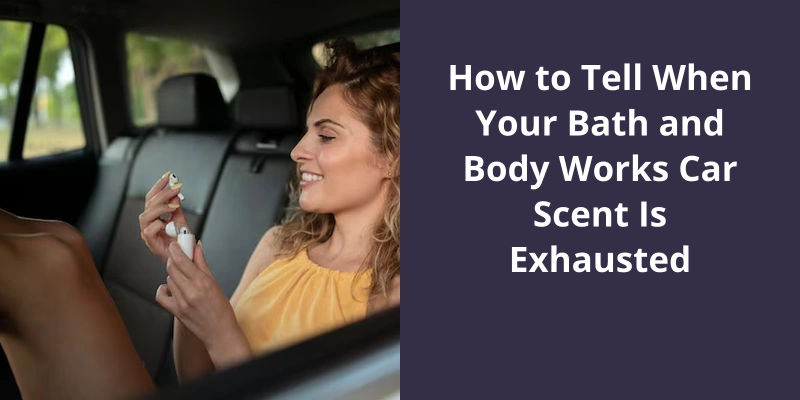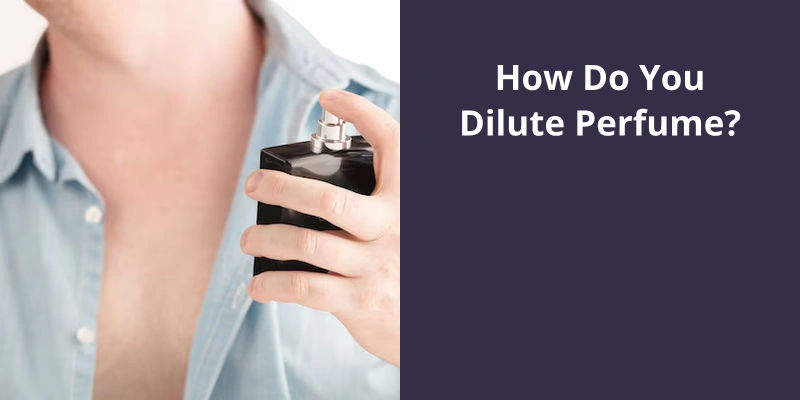If your baby drank Johnson’s Baby Cologne, don’t panic but act promptly. The first step is to monitor your baby for any adverse reactions such as vomiting, gagging, coughing, or breathlessness. Try to keep the baby calm and comfortable. Johnson’s Baby Cologne usually contains ingredients that are not harmful in small quantities, like ethyl alcohol, water, and fragrance, but isn’t intended for consumption. Therefore, it’s crucial to get medical advice as soon as possible. Always ensure to keep such products out of children’s reach to prevent such incidents.

Is It OK to Put Cologne on Baby?
One of the most exciting things about having a new baby is being able to care for them and make them feel comfortable and loved. Many new parents love to bathe their babies and dress them in cute outfits, and some even like to use baby perfumes or colognes to make them smell good. However, as tempting as it may be, it’s best to avoid using highly-scented products on your babys delicate skin in the early days of their life.
Newborn babies have very sensitive skin that’s still developing and adjusting to life outside the womb. Using products with strong fragrances or perfumes can irritate their skin and cause rashes or other reactions. It’s best to stick to mild, hypoallergenic soaps and lotions that are specifically formulated for babies sensitive skin. These products are gentle enough to cleanse and moisturize without causing irritation.
When it comes to using cologne or perfume on your baby, it’s important to remember that less is more. Babies naturally have a sweet, milky scent that’s unique to them, and many parents find this naturally appealing. Instead of masking this scent with overpowering fragrances, you can enhance it by using natural oils or lotions that complement your babys natural smell.
Babies rely on their sense of smell to find and latch onto their mothers nipple during feeding. Strong perfumes or colognes can confuse your baby and make it harder for them to breastfeed successfully.
While it may seem cute or fun to make your baby smell like a little adult, it isn’t necessary for their health or well-being. Instead of focusing on their scent, try spending more time bonding with your baby through skin-to-skin contact, talking, reading, or singing. These activities will do more to strengthen the bond between you and your baby than any perfume ever could.
It’s a frightening experience when your baby drinks a harmful substance like cologne. Although it’s a rare occurrence, it’s crucial to act quickly and efficiently to prevent any serious consequences. In this article, we’ll provide essential information on what to do when your child drinks cologne and steps you can take to keep your little one safe.
What Should I Do if My Baby Drank Cologne?
It’s essential to react immediately if you find your baby drinking cologne. Even if it’s a small amount, your childs delicate system may not be able to tolerate it. The most important step is to remain calm and composed while reacting quickly to the situation. If you panic, it may make the situation worse, so try to stay calm and composed.
The first step you should take is to prevent the alcohol from being further absorbed into the bloodstream by the body. A light snack such as cereals, fruits, or crackers will help the blood sugar levels remain stable and prevent the alcohol from being absorbed quickly. It will also help to provide a calming effect on your baby, who might be agitated and uncomfortable.
Once you’ve given the light snack, it’s essential to seek medical assistance immediately. Call Poison Control at 1-800-222-1222, which is a 24/7 emergency hotline that can provide guidance on what to do next. They’ll ask for relevant information such as the name of the cologne, the amount ingested, the childs weight, and any pre-existing medical conditions that the child may have.
If Poison Control determines that the ingestion is severe, they may ask you to take your baby to the nearest hospital immediately. The medical professionals at the hospital will assess the situation and provide the necessary treatment. Depending on the amount ingested, they may need to provide additional support such as intravenous fluids, medication, or observation in the hospital.
It’s important to keep the cologne bottle available to provide accurate information to Poison Control or medical professionals. It will help them determine the type of cologne ingested and provide guidance on the appropriate treatment. It will also help prevent any confusion during the medical procedure.
It’s important for parents to be aware of the potential risks associated with fragrances and colognes when it comes to their children’s safety. With a higher rate of chemical absorption, children may be more susceptible to harm from these products. Additionally, accidental ingestion can lead to serious consequences. Therefore, it’s crucial to take precautions and consider alternatives to potentially harmful fragrances.
Is Cologne Safe for Kids?
With that said, many parents might wonder if it’s safe to apply cologne or perfume to their children. Cologne is a type of fragrance that contains alcohol and various synthetic or natural ingredients to create a particular scent. Some of these ingredients can cause skin irritation in children, such as synthetic fragrances, which contain harmful chemicals that have been linked to endocrine disruption and allergic reactions.
The American Academy of Pediatrics (AAP) recommends avoiding the use of fragrances for children under six years of age, as their skin is more sensitive and can react more severely to chemicals. Moreover, the fragrances can cause respiratory problems, headaches, and other adverse health effects, especially for children with underlying medical conditions such as asthma or allergies.
Some colognes contain essential oils, which can be beneficial for skin health and offer natural fragrance. However, these essential oils can also cause an allergic reaction in some children, leading to skin redness and itching. Parents should always test the cologne on a small patch of skin before applying it to the entire body to reduce the risk of a reaction.
It’s also important to note that children can accidentally ingest cologne, which can cause poisoning. In case of accidental ingestion, parents should call the Poison Control Center or visit the nearest emergency department as soon as possible.
It’s also essential to choose natural fragrance options and keep the products out of reach of children to prevent accidental poisoning.
How to Choose a Safe and Natural Cologne for Kids
- Look for colognes that are labeled as “natural” or “organic.”
- Avoid colognes that contain synthetic fragrances or chemicals.
- Read the ingredient list and research any ingredients you’re unsure of.
- Choose colognes made with essential oils or botanical extracts.
- Consider colognes that are specifically formulated for children.
- Test the cologne on a small patch of skin before using it on larger areas.
- Avoid colognes with harsh or irritating scents.
- Consult a dermatologist or pediatrician if you’ve concerns about a particular cologne.
Conclusion
It’s an unfortunate reality that accidents can happen with babies and children. It’s important for parents and caregivers to be vigilant and keep hazardous items out of reach of children. In the event of an accident or ingestion, seeking medical attention should always be the first priority. As a community, we can work together to raise awareness about the dangers of certain products and promote safe practices when it comes to caring for our little ones. Let’s strive to prioritize the health and well-being of our children, and take every precaution to prevent accidents from happening in the first place.





